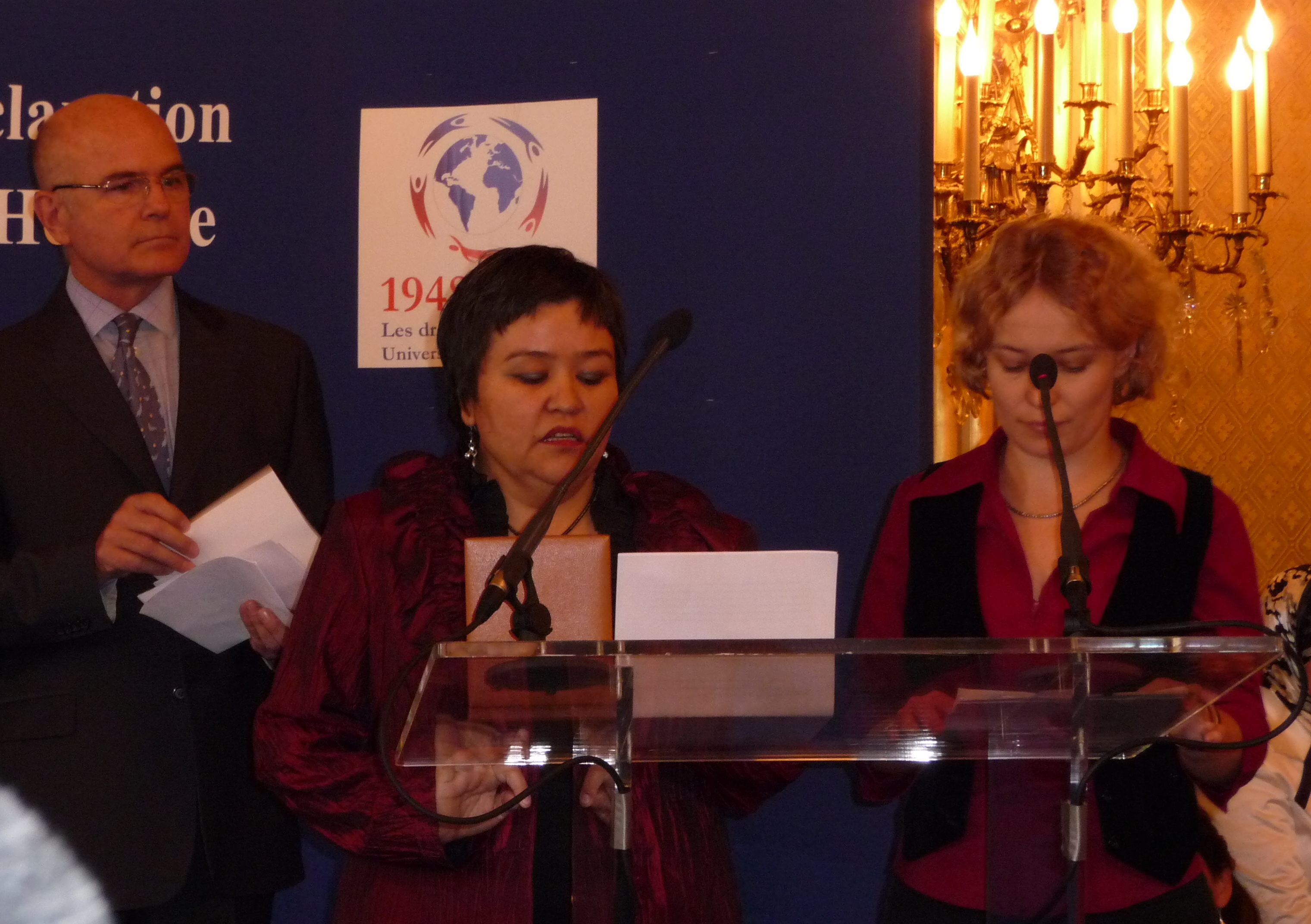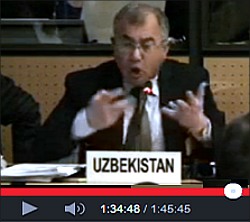Nikki Sinclaire
Twenty years ago this week, Uzbekistan adopted its first constitution as an independent republic creating the legislative framework for human rights and democracy. Yet, two-decades later, the democratic government and individual liberties enshrined in the Uzbek constitution bear little resemblance to today’s autocratic government which systematically tramples on its citizens’ most fundamental rights. What is even more regrettable is the EU’s apparent failure to have any genuine impact on the improvement of the rule of law and democracy in Uzbekistan. This fact underlines the concerns expressed by many on the effectiveness of EU policy, and of the External Action Service.
According to the principle of the rule of law, no one is above the law and all state officials must act within the limits of the law. Historically, constitutions both guaranteed the rule of law and created institutional frameworks for its realization by stipulating what constitutes the foundations of state authority and providing for separation of powers. The Uzbek Constitution is not an exception. Its Preamble declares the adherence of Uzbek people to human rights and democracy. Article 13 states that democracy in Uzbekistan rests on such ultimate values as life, freedom, honor and dignity of human beings. Instituting the system of the checks and balances, Article 11 provides for the separation of power between the legislative, executive and judicial authorities.
In practice, however, Uzbekistan is an authoritarian country with a dismal human rights record. The Uzbek government persecutes human rights defenders, journalists, and others for exercising their fundamental rights to freedom of expression, press, assembly and conscience. Over the past years, the Uzbek government appears to have used fabricated charges to imprison a number of dissidents. For example, Dilmurod Saidov, a prominent independent journalist, was arrested on false extortion charges and sentenced to 12 and a half years following his extensive reporting on farmer’s rights and local government corruption in the city of Samarkand. Similarly, Salijon Abdurakhmanov, also an independent journalist, was arrested on fabricated drug charges sentenced to 10 years in prison shortly after writing an article criticizing the local traffic police.
Courts in Uzbekistan do not serve their purpose. Though the Constitution stipulates that judges are independent and that it is prohibited to interfere in their administration of justice, Uzbeks have little faith in the independence of the judiciary. They perceive judges as biased and believe that prosecutors have total control over the outcome of a case. Corruption has also undermined the judicial system, as Uzbeks have little trust in defense lawyers, at times referring to them as “bribe mediators.” Akzam Turgunov is illustrative of the judiciaries failure to act as an independent and unbiased arbiter. Mr.Turgunov, a human rights activist and political opposition leader, was arrested on extortion charges and sentenced to 10 years in prison.
Despite the fact that Mr.Turgunov was held incommunicado for more than two weeks, during which time an officer poured boiling water down his back resulting in severe burns, the court ignored these flagrant violations of procedural rights. Last November, the UN Working Group on Arbitrary Detention (WGAD) found that Mr. Turgunov’s continued imprisonment constituted arbitrary detention. WGAD came to this conclusion because Mr.Turgunov’s detention resulted from his legitimate human rights activity and his trial failed to meet minimum international standards of due process.
One would hope that Uzbekistan’s engagement with the European Union (EU) would have had positive impact on the overall improvement of the rule of law and human rights in the country. Unfortunately, that was not the case. There are several documents that oblige the EU to engage Uzbekistan on the issues of democracy, human rights and the rule of law. One of the major documents is Partnership and Cooperation Agreement (PCA) between the EU and Uzbekistan. Another one is the EU Rule of Law Initiative for Central Asia, adopted within the framework of EU-CA Strategy. Add to this the EU Representative Catherine Ashton’s call to make human rights “a silver thread” in the EU’s foreign relations and newly adopted “EU Strategic Framework and Action Plan on Human Rights and Democracy,” the EU’s engagement with Uzbekistan on these issues has been extremely trivial.
To translate the EU’s ideals into action, the EU should start with challenging the Uzbek government about the sad state of the rule of law in the country. In the absence of the rule of law, there can be no genuine development in human rights and democracy. Given courts are the pillars of the rule of law, the EU shall immediately embark on the reform of the judiciary. It is through the decisions of independent courts that constitutional provisions would acquire their significance and protect individuals, especially human rights activists and independent journalists, from being persecuted for their views critical of the government. The EU shall also work more steadfastly on persuading the Uzbek government to free human rights activists, independent journalists and political activists, who were victims of absence of the rule of law in the country.
Nikki Sinclaire is a member of the European Parliament’s Human Rights sub-committee. She also sits on the Women’s Rights and Gender Equality Committee.
http://www.freedom-now.org/wp-content/uploads/2014/12/Uzbekistan-ROL.pdf



